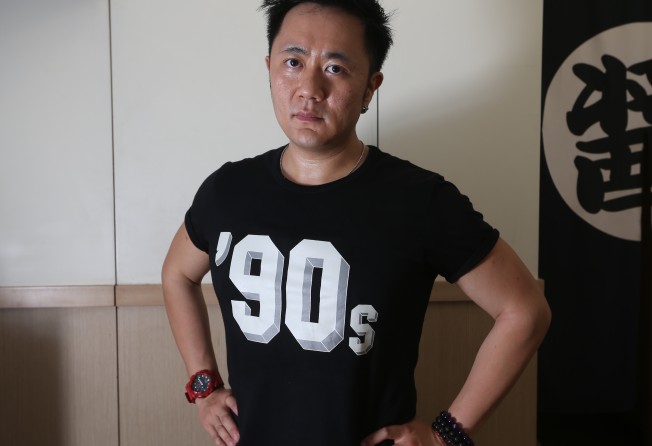Interview: Hong Kong radio host Kengo Ip backs Japanese culture to endure
In wide-ranging chat, Ip dismisses fad for all things Korean, says Hong Kong's lost the battle for democracy, and frames gay acceptance as a matter of money

48 HOURS: Tell us about your latest work.
KENGO IP: For the annual Hong Kong Book Fair [July 16-22], I'm releasing a new book on the paradoxes of the Japanese culture. It aims to debunk the many myths held by locals. Hongkongers often see inaka, Japanese rural area or countryside, as the ideal place for retirement. But the countryside is where many baby boomers born in the 1940s die. The Japanese countryside is remote and elderly Japanese can only rely on each other for care. Many accidents and deaths happen there.
Why do you like Japanese culture so much?
I love Japan's pop culture, in particular. In the 1990s, I loved listening to boy band V6 and watched all the popular TV dramas like Long Vacation. I even watched the variety shows with no subtitles. I would just guess what they were saying. So later I decided to learn Japanese so that I could understand the shows without subtitles. Eventually, I chose to [turn my obsession into] my career.
Japan's stature in the world seems to be waning as its tech industry is dwarfed by Silicon Valley, and Korean pop culture is all the rage now. What do you think about this trend?
A country's stature is made of many things, like urban planning, culture and so on. If you go to South Korea, after you visit Busan, Seoul and Jeju, there're not many other places worth going to. But in Japan, there are many places that appeal to Hongkongers. Also, South Korea's weather is quite extreme, whereas Japan has distinct seasons. Also, unlike the Japanese government, South Korea's government has not set up Korean studies departments in universities around the region. They lag behind the Japanese in overseas cultural promotion. Despite the Korean craze, the Japanese just keep doing their own work and their popular culture industry retains its unique characteristics. They have much confidence in their own culture.
What do you think about the local pop culture scene in comparison to Japan's?
I haven't had much thought on the local scene for years. But I still listen to pop songs as I host a night programme on Commercial Radio.
You are also a newspaper columnist who writes about local politics. What do you think about the political aspirations of the young generation?
We have already lost the battle. We've lost it since the day we retreated from Admiralty at the end of Occupy Central. The young generation no longer have the capital to make those with vested interests make compromises. To prepare for my teaching at Chinese University, I need to read lots of political news every day. The more I read, the more gloomy I feel.
As an openly gay media personality, what do you think about sexual minority rights in Hong Kong now?
I see the whole issue from the perspective of capitalism. It's not about sexual orientation. It's about whether you have money. When I was at the Pink Dot Hong Kong event last year, I saw people from Merrill Lynch sporting everything in pink. Even the lids of their water bottles were in pink. They need to have lots of resources to do that. So if you are gay and you have money, then you can go to Holland to get married.
America has just legalised gay marriage across all states. What do you think of that?
What has that got to do with me? I am a Hongkonger without a US passport or an American boyfriend.